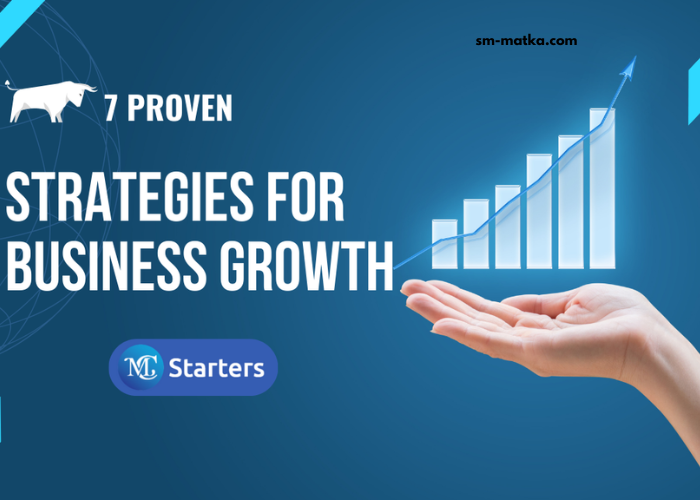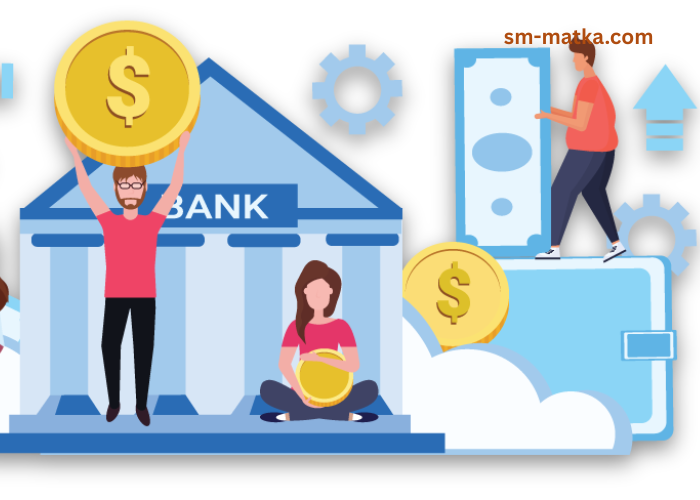Boost Business Growth with Proven Marketing Strategies

In the ever-evolving business landscape, marketing plays a pivotal role in driving business growth. Whether you are a small startup or an established enterprise, harnessing the power of effective marketing strategies can significantly enhance your brand’s visibility, customer base, and profitability. This article will explore proven marketing strategies that can help businesses of all sizes accelerate their growth and achieve long-term success.
Understanding Business Growth and Marketing
Before diving into the strategies themselves, it is essential to understand what business growth means in a modern context. Business growth refers to the increase in a company’s capacity to generate revenue, expand its market share, and improve profitability over time. Marketing, on the other hand, is the practice of promoting products or services to potential customers. When done correctly, marketing strategies not only attract new customers but also retain existing ones, leading to sustainable growth.
Why Marketing is Crucial for Business Growth
Marketing is a key driver of business growth for several reasons:
- Brand Awareness: Effective marketing ensures that your target audience is aware of your brand, products, and services. It helps position your business as a trusted name in the market.
- Customer Engagement: Through marketing channels, you can engage with customers, building relationships that lead to customer loyalty and advocacy.
- Competitive Advantage: Marketing helps businesses stay ahead of competitors by highlighting unique selling propositions (USPs) and differentiating products or services.
- Sales Generation: Ultimately, the goal of marketing is to convert leads into sales, directly contributing to revenue growth.
With this understanding in mind, let’s explore some of the most effective marketing strategies that can boost business growth.
Proven Marketing Strategies to Drive Growth
1. Digital Marketing and Social Media Optimization
In today’s digital world, businesses must have an online presence. Digital marketing encompasses a wide range of activities, including search engine optimization (SEO), social media marketing, content marketing, email marketing, and online ads. Among these, social media marketing has emerged as one of the most impactful tools for driving business growth.
Key Benefits of Social Media Marketing:
- Increased Brand Visibility: Platforms like Facebook, Instagram, Twitter, and LinkedIn provide businesses with an opportunity to reach millions of users worldwide.
- Targeted Advertising: Social media allows businesses to target specific audiences based on demographics, interests, and behaviors, ensuring ads reach the right people.
- Real-time Customer Interaction: Social media enables immediate communication with customers, fostering engagement and addressing concerns quickly.
SEO also plays a critical role in enhancing visibility. By optimizing your website content with relevant keywords, improving website speed, and ensuring mobile-friendliness, you can rank higher on search engine results pages (SERPs), driving organic traffic to your website.
2. Content Marketing for Audience Engagement
Content marketing is a proven strategy that revolves around creating valuable, relevant, and consistent content to attract and engage a defined target audience. This could include blog posts, articles, videos, infographics, and podcasts.
How Content Marketing Drives Growth:
- Building Trust and Credibility: Quality content positions your business as an authority in your industry, gaining customer trust.
- Improved SEO: Regularly updated and optimized content increases your website’s chances of ranking higher on search engines, leading to organic growth.
- Customer Education: By educating your audience about your products or services, content marketing can help move prospects through the sales funnel, making them more likely to purchase.
Incorporating a blog on your website or publishing long-form articles allows you to rank for a variety of search terms, answering customer queries and driving traffic to your site.
3. Email Marketing Campaigns
Email marketing remains one of the most effective tools for driving business growth. Despite the rise of social media and other channels, email still boasts one of the highest return-on-investment (ROI) rates in digital marketing.
Benefits of Email Marketing:
- Personalization: Emails can be tailored to the recipient’s behavior and preferences, making them more relevant and engaging.
- Segmentation: Businesses can segment their email lists based on factors like demographics, purchase history, or engagement levels, ensuring that content is targeted and meaningful.
- Nurturing Relationships: Email allows you to stay in touch with potential and existing customers by delivering helpful information, exclusive offers, and product updates.
By sending regular newsletters, special offers, and automated follow-up sequences, businesses can keep their customers engaged and encourage repeat purchases.
4. Influencer Marketing
Influencer marketing leverages the popularity of individuals with a significant online following to promote your products or services. With the rise of social media, influencers have become powerful voices in shaping consumer opinions and purchasing decisions.
Why Influencer Marketing is Effective:
- Expanded Reach: Influencers already have an established audience, which means your brand can be introduced to a broader audience quickly.
- Increased Trust: Consumers trust influencers’ recommendations, and when an influencer endorses your brand, it can lead to increased credibility and trust.
- Targeted Audiences: Influencers often have highly niche followers, allowing you to target specific market segments.
Partnering with influencers in your industry can boost brand awareness, drive traffic, and ultimately lead to higher sales.
5. Paid Advertising (PPC Campaigns)
Paid advertising is a strategy where businesses pay for their ads to appear in search engine results or on other platforms like social media. Pay-per-click (PPC) advertising is one of the most common forms of paid advertising.
Advantages of PPC:
- Immediate Results: Unlike SEO, which can take time to show results, PPC delivers immediate traffic and results.
- Targeting Capabilities: PPC platforms allow businesses to target specific keywords, locations, times, and demographics to reach the most relevant audience.
- Scalability: You can adjust your budget and campaign settings to scale up or down based on performance and goals.
Platforms like Google Ads, Facebook Ads, and LinkedIn Ads can be incredibly effective for driving immediate traffic to your website or landing pages, converting leads into customers.
6. Referral Marketing
Referral marketing leverages the power of word-of-mouth to drive business growth. By encouraging your existing customers to refer their friends, family, or colleagues, you can attract new customers while also rewarding loyal ones.
Why Referral Marketing Works:
- Low-Cost Acquisition: Referral marketing is a cost-effective way to acquire new customers since you rely on existing customers to spread the word.
- Trust and Credibility: People trust recommendations from their friends and family more than any form of advertising.
- Incentivizing Loyalty: Offering incentives for referrals, such as discounts or freebies, can motivate your customers to spread the word.
Referral programs can be an excellent way to grow your business organically and tap into your existing customer base.
7. Customer Retention Strategies
While acquiring new customers is essential for growth, retaining existing customers is equally important. In fact, it is often more cost-effective to retain a customer than to acquire a new one. Loyal customers are also more likely to refer others and become repeat buyers.
Techniques for Improving Customer Retention:
- Loyalty Programs: Offer rewards, discounts, or exclusive perks to customers who continue to make purchases from your business.
- Personalized Experiences: Use data to create personalized shopping experiences for customers, such as targeted promotions or recommendations based on past behavior.
- Customer Support: Excellent customer service ensures that customers are satisfied and more likely to return.
By focusing on providing exceptional experiences for existing customers, you create a solid foundation for sustained business growth.
8. Data-Driven Decision Making
With the wealth of data available through digital marketing tools and analytics platforms, businesses can make more informed decisions. Data-driven marketing refers to the use of data to guide marketing strategies, improve targeting, and optimize campaigns for better results.
The Power of Data-Driven Marketing:
- Better Audience Insights: Analytics tools provide a deeper understanding of customer behavior, preferences, and pain points.
- Optimizing Campaigns: By analyzing data from previous campaigns, businesses can refine their strategies to improve ROI.
- Personalized Marketing: Data allows businesses to tailor content, offers, and ads to specific segments of their audience, increasing engagement and conversions.
By leveraging data, businesses can improve the effectiveness of their marketing strategies and accelerate growth.
Conclusion
In today’s competitive market, businesses must implement comprehensive and innovative marketing strategies to stay ahead. From digital marketing and social media optimization to influencer marketing and data-driven decision-making, these proven strategies can significantly boost business growth. By consistently refining your approach and staying responsive to market trends, your business can achieve sustainable success and thrive in an ever-changing marketplace.
Whether you are looking to increase brand awareness, improve customer retention, or drive more sales, these strategies provide a solid foundation for growth. Remember, the key to success lies in implementing the right mix of tactics, measuring results, and adapting as needed to ensure that your business continues to flourish.



